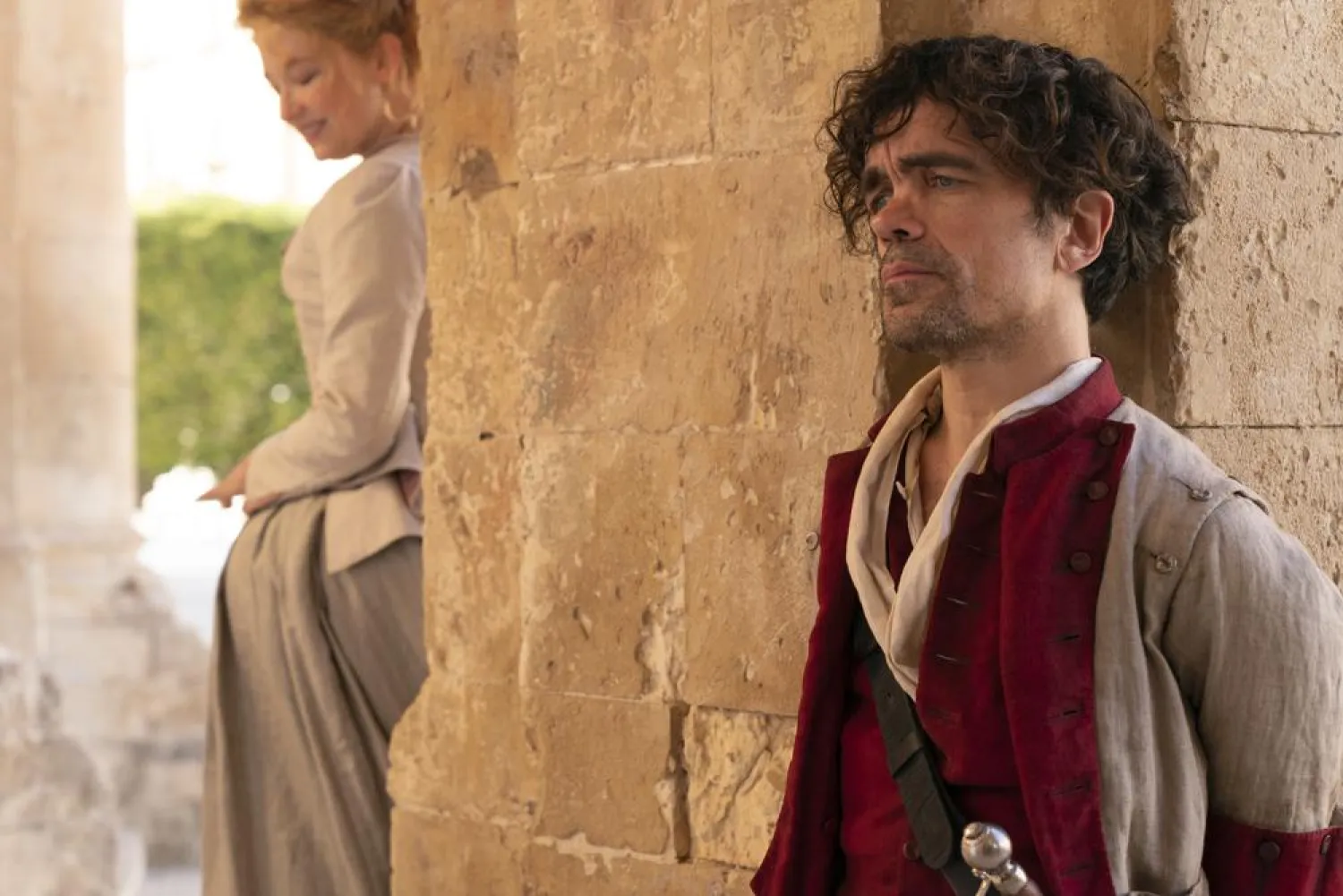Joe Wright is at his best when he’s making movies about love. They may not always have a happy ending. In fact, they usually don’t. But truly romantic movies seem to be a rarer and rarer thing in contemporary cinema and, like Max Ophuls and Jacques Demy before him, Wright is almost peerless in his ability to make an audience swoon and suffer in maximalist splendor.
“Cyrano” is one of his finer efforts among a flock of high achievers including “Atonement” and “Pride & Prejudice.” And this lush adaptation of Edmond Rostand’s classic play “Cyrano de Bergerac” feels like it was made by people who are IN love, which could be at least partially attributed to the fact that the creatives behind the camera were with the ones in front: Wright is married to Haley Bennett, who plays Roxanne, and the screenwriter, Erica Schmidt, is married to Peter Dinklage, who plays Cyrano.
Schmidt, it should be said, deserves more credit than just screenwriter. She is the playwright who not only had the idea to have Dinklage play the lovelorn wit (and without his signature schnoz), but to enlist members of the rock band The National to help make it a stage musical. Aaron Dessner and Bryce Dessner wrote the music and front man Matt Berninger collaborated with his wife Carin Besser on the lyrics.
Though hardly the first costume drama to do so, it is an inspired choice to juxtapose The National’s signature sounds, aching and wistful and undeniably modern, within a classical setting. Bennett has a particularly powerful and sumptuous voice that makes you yearn with her as she cries out about wanting more. She’s a trained singer who doesn’t get to use those talents very often (though one of her early roles was as the popstar in “Music and Lyrics”). Dinklage does not have the voice of a professional singer, but there’s a sweetness to its ordinariness that’s more “Umbrellas of Cherbourg” than Rex Harrison in “My Fair Lady.”
Besides, Dinklage doesn’t need a Broadway voice. He’s got that face and its gorgeous expressiveness that he uses so masterfully. And goodness does Cyrano need an actor who can show every emotion in a few moments. Just take the exciting tension of the scene where Roxanne, who he secretly pines for, reveals to him that she’s fallen in love-at-first-sight with a handsome soldier Christian de Neuvillette (Kelvin Harrison Jr).
Everyone knows this story and how it turns out. But “Cyrano” does a wonderful job of letting you cling to the hope that it might go differently, as agonizing as it might be.
And the three leads make their cases compellingly here. Christian may be tongue-tied and somewhat basic, but he’s still a human with a heart whose love for Roxanne does seem sincere, if surface. And Cyrano, for all his worldliness, ego and bravery, is reduced to crumbles around Roxanne, with whom he shares genuine chemistry. She also is allowed to inhabit contradictions — innocence and the wisdom of an old soul — while navigating her desires and disgusts (including a slimy and entitled third suitor, De Guiche, who is played with moustache-twirling decadence by Ben Mendelsohn, hiding behind dusty makeup and dandy costuming).
The production transposes Cyrano to the mid-1700s (up a century from Rostand’s play), allowing costumer Massimo Cantini Parrini and cinematographer Seamus McGarvey to relish in ethereal watercolors and light, billowy fabrics as we fall for our tragic leads. The Sicilian city Noto provides the beautiful baroque backdrops.
Wright has said that he just wanted to make something beautiful during the pandemic. He did even if, and maybe because, there were a few tears in the mix too.









